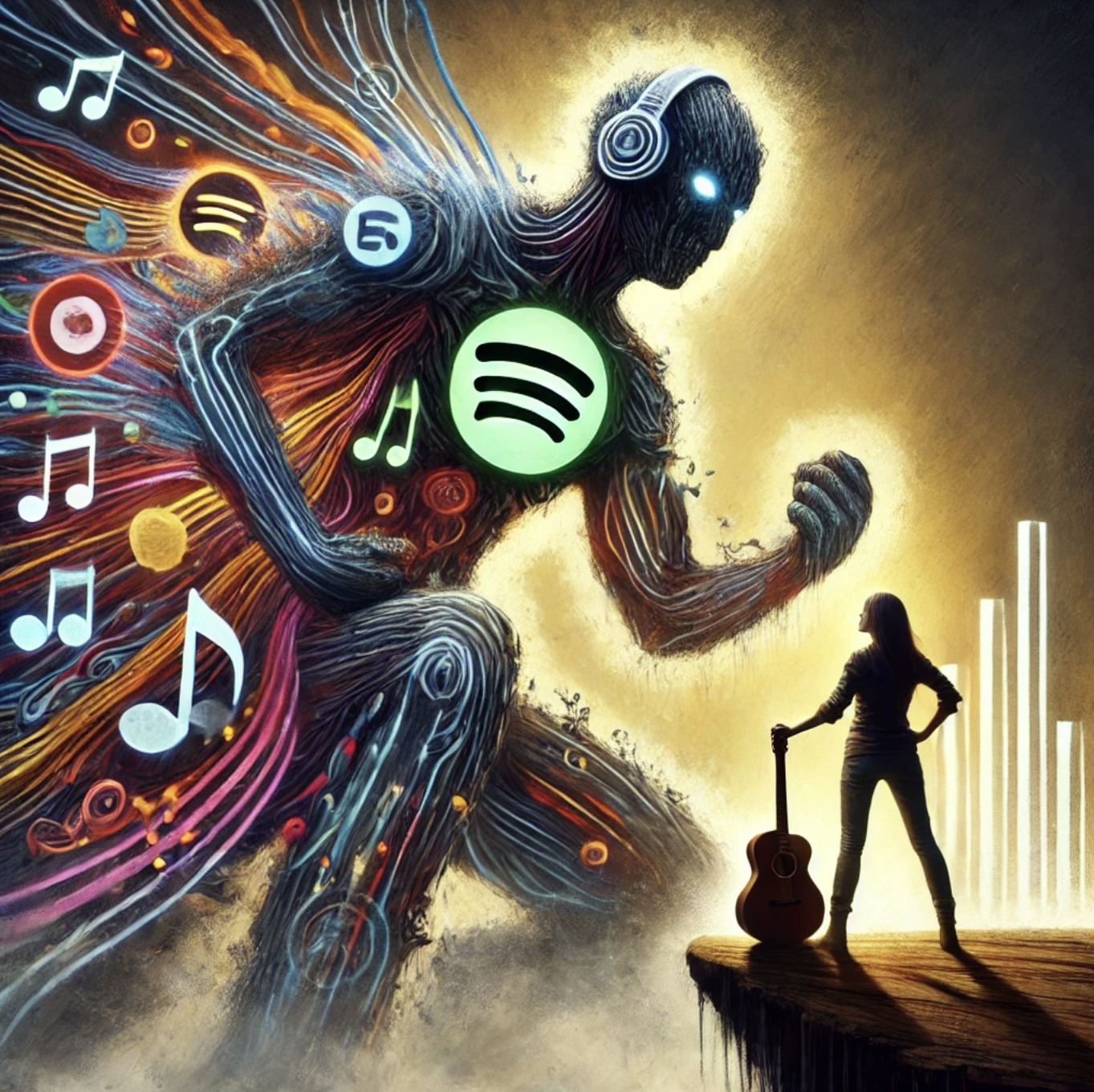Taylor Swift’s Influence on Streaming Platforms: Impact on Artist Compensation and Emerging Songwriters
Taylor Swift has been a prominent voice in the debate over streaming services, artist rights, and fair compensation. Additionally, Taylor Swift’s influence on streaming platforms has played a crucial role in shaping industry discussions. Her actions have shaped the music industry’s approach to digital distribution and prompted changes in artist compensation models. Let’s dive into how Swift’s decisions have influenced streaming platforms and the music business as a whole.
Taylor Swift’s Initial Stand Against Spotify
In 2014, Taylor Swift made waves by removing her entire catalog from Spotify. This bold move, influenced by Taylor Swift’s influence on streaming platforms, stemmed from her belief that the platform’s free-tier model devalued the work of artists and creators. At the time, Spotify offered a free, ad-supported version of their service, which Swift felt did not adequately compensate artists for their work. By taking her music off the platform, she showcased Taylor Swift’s influence on streaming platforms and artist payouts. Furthermore, she demanded fairer payouts for streaming music. As she once sang, ‘The stakes are high, the water’s rough, but this love is ours.’
Swift’s decision led to an important discussion within the industry about the value of music in the digital age. It also paved the way for other artists to reconsider their relationships with streaming services, emphasizing the importance of fair pay for their work.
Taylor Swift’s Influence on Streaming Platforms: Negotiating with Apple Music
In 2015, Swift wrote an open letter to Apple Music criticizing their policy of not paying artists during the three-month free trial offered to new users. Her message was clear: artists deserve to be paid for their work, even during promotional periods. As a result of Taylor Swift’s influence on streaming platforms, her actions caught widespread attention. In her own words, ‘I swear I don’t love the drama, it loves me,’ but this time it was about standing up for what was right. The letter went viral, and Apple responded within 24 hours, announcing they would pay artists during the trial period. This was a landmark moment for artist rights in the streaming era, showcasing Swift’s power and influence.
Taylor Swift’s Strategic Use of Streaming Services
While initially critical of streaming services, Taylor Swift eventually returned her music to Spotify in 2017, but on her own terms. Consequently, her strategic approach helped redefine artist rights. By then, Spotify had introduced changes to its platform, partly due to Taylor Swift’s influence on streaming platforms. These changes included more options for artists to control how their music was distributed. Swift used a strategy known as “windowing” to delay the release of her album Reputation on streaming services, instead prioritizing physical and digital sales initially. This tactic maximized her earnings and underscored her desire for a fair distribution of revenue.
Her actions set an example for other artists. Many adopted similar strategies to maximize revenue before allowing their music to be streamed. This approach has been particularly impactful for artists who rely on album sales to make a living, offering them more control over how they distribute their music.

Taylor Swift’s Influence on Streaming Compensation Models
Taylor Swift’s influence on streaming platforms forced companies like Spotify and Apple Music to rethink their policies regarding artist compensation. It’s a classic case of ‘shake it off‘—standing up and pushing for change. In response to her actions, Spotify increased transparency around their payout structures and offered better deals for artists. Apple Music quickly responded to Swift’s criticism, showing how high-profile artists can directly shape industry practices.
Swift’s advocacy inspired a broader movement within the industry, with many artists—both established and emerging—demanding better pay and fair treatment from streaming services. Taylor Swift’s influence on streaming platforms continues to push these companies to improve how they treat artists, leading to more artist-centric policies and initiatives.
The Impact on the Industry and Emerging Artists
Taylor Swift’s influence on streaming platforms sparked positive changes in the streaming industry. Her advocacy brought greater transparency and improved policies from major platforms like Spotify and Apple Music. Emerging artists have benefited from her efforts, as the shift toward more equitable payment structures began. However, while Swift influenced these changes successfully, many issues remain unresolved.
Ongoing Issues with Spotify and Artist Compensation
Although Taylor Swift’s influence on streaming platforms brought some positive changes, many artists still express dissatisfaction with how Spotify and other streaming platforms handle artist compensation. For instance, the pay-per-stream model remains problematic. Critics argue that despite changes, the pay-per-stream model continues to be unsustainable for most musicians. Artists such as David Crosby, Thom Yorke, and up-and-coming musicians have voiced their concerns. Crosby described Spotify’s payouts as “pitiful,” while Thom Yorke famously called Spotify “the last desperate fart of a dying corpse,” emphasizing the low financial returns for artists.
Most musicians receive minimal revenue from streaming unless they have a massive number of streams. Taylor’s advocacy helped shine a light on these issues, but the fundamental structure of streaming payouts still heavily favors major labels and platforms, leaving smaller artists struggling. This remains a significant point of contention within the music industry, with many demanding radical reforms to ensure fair compensation for all creators.
Ray Swift’s Perspective: Taylor Swift’s Influence on Streaming Platforms
Taylor Swift’s actions go beyond business decisions—they show her commitment to valuing art and protecting creators’ rights. For many, Swift’s advocacy highlights the power artists can wield when they stand up for themselves, even against massive corporations.
Taylor’s decision to remove her catalog from Spotify and publicly challenge Apple Music wasn’t just about money; she sent a clear message that music should not be treated as a disposable commodity. She wanted the industry to recognize that songs come from hard work, creativity, and emotional investment. By standing up for what she believed in, Taylor advocated for all artists—both established and emerging—who deserve fair compensation for their contributions.
One interesting angle is how Taylor’s moves reflect broader themes of artistic integrity. To an esoteric mind, her stand represents a fight for the sacred value of creative output—as though she’s protecting the “magic” behind music. Taylor Swift’s decisions challenge the commodification of art in a digital world, ensuring that songwriting and music creation remain respected as deeply human expressions.
Changing Policies
Her actions reshaped streaming platform policies and empowered her peers. This influence has led to a healthier music ecosystem, where young songwriters and musicians now have greater hope for a sustainable career. Even in a world dominated by algorithms and corporate interests, artists still have the power to shape their destinies and demand respect for their work.
Taylor Swift’s influence on streaming helped shape a more artist-friendly industry. By taking a stand, she paved the way for other musicians to demand fair treatment, ensuring that art remains valued in the digital age.
Tell us what you think about Taylor Swift’s influence on the streaming era! Has she done enough to help protect other artists from the industry?
Click here for more articles and news.
Ray Swift ✨🎶📝

